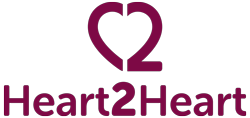Immunisations
Download this information sheet as a PDF
The aim of this information sheet is to provide information on immunisations for children with heart conditions.
Children with heart conditions need to have all of the routine vaccinations recommended for all children of their age. Immunisation is offered against the following target diseases:
· Diptheria
· Tetanus
· Whooping cough (pertussis)
· Polio
· Measles
· Hib disease
· Mumps
· Rubella
· Pneumococcal disease
· Meningococcal disease
Your child may also be offered vaccination against influenza and bronchiolitis. From September 2008, girls aged 12-13 years will also receive the HPV vaccination against cervical cancer.
How does immunisation work?
Immunisations are given as an injection or by mouth. They help the body to protect itself against infections by stimulating the immune system to produce antibodies to a specific disease.
Routine Immunisations
Routine immunisations start from two months old and are given throughout childhood. The final doses are usually given at fifteen years old. You can find details of the normal vaccination schedules at http://immunisation.dh.gov.uk/. Alternatively, your child’s health visitor or GP should also be able to tell you which vaccinations they need, when and where to get them.
Extra Vaccines
Your child’s heart condition may leave him or her more susceptible to other illnesses that can be vaccinated against such as Influenza (Flu), Pneumonia and RSV (Bronchiolitis). Although Influenza and RSV are not part of the routine immunisation schedule they may be offered to give extra protection to children at special risk.
Flu vaccine
It is recommended that the flu vaccine be given every year to children with heart conditions from the age of 6 months to 12 years. If it is the first time your child has had a flu vaccination, then it should be repeated after 4-6 weeks. Although the flu jab will not protect your child from every type of flu, it should offer protection from the most common type each year. As long as your child is well, the vaccination will give added winter protection. The ideal vaccination time is in October just before winter sets in. Children who are hypersensitive to egg should not be offered the flu vaccination.
RSV (Bronchiolitis)
Children with heart conditions are particularly vulnerable to RSV infection. However, health professionals have not yet reached an agreement on who is eligible for this vaccination and at what age. You should ask your child’s cardiologist for more advice on this.
Why does my child need immunisation against diseases that are not around anymore?
The diseases that your child will be immunised against still affect many millions of children across the world. If children in the Britain were not vaccinated against these diseases, the diseases would soon become common again. Measles and whooping cough are two examples of diseases which have increased in recent years because some parents decided not to immunise their children.
Should my child have all the vaccinations?
Yes, especially during the first year of your child’s life when they are often more prone to infections. By vaccinating them against serious life threatening diseases, you are giving them vital protection from unnecessary illnesses.
It is important that you and your doctor choose the right time for your child to receive some of the vaccinations. Your child should be as healthy as possible when they have their vaccination and they should probably not have a vaccination in the run up to having surgery. If you are concerned about the timing of your child’s vaccinations, talk to your health visitor, GP or cardiologist.
Will the immunisations react with any of my child’s medications?
Most routinely given cardiac medications will not react with immunisations. However, children on warfarin are at risk of bleeding when vaccinated via an injection into muscles in the arm or leg. Talk to the doctor who prescribes the warfarin before your child is given the injection. If your GP or health visitor is concerned about giving any vaccination, they can ring your cardiac liaison nurse or cardiologist for advice.
If I want more information about immunisations, whom can I talk to?
Your health visitor and GP will be able to give you more information on immunisations. You can also find more information on immunisations at http://immunisation.dh.gov.uk/.
If you still have unanswered questions, talk to the cardiac liaison nurse or your child’s cardiologist.
Evidence and sources of information for this CHF information sheet can be obtained at:
(1) National Institute for Health & Care Excellence. Clinical Knowledge Summaries, Immunizations Childhood. London: NICE; 2017. Available at:
https://cks.nice.org.uk/immunizations-childhood
(2) NHS Choices. Congenital heart disease: complications. London: NHS; 2017. Available at:
www.nhs.uk/conditions/congenital-heart-disease/pages/complications.aspx
About this document:
Published: June 2014
Reviewed: May 2022
To inform CHF of a comment or suggestion, please contact us via info@chfed.org.uk or Tel: 0300 561 0065.









